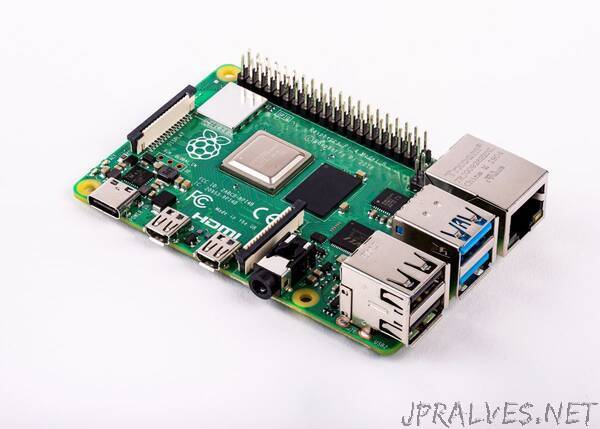
“Developers and makers around the world have snapped up 30 million units of the Raspberry Pi since the diminutive British-designed computer began selling in February 2012.
Raspberry Pi Foundation co-founder Ebert Upton had far more modest expectations at the outset, predicting sales of just 10,000 units.
But the $35 mini computer — which has grown through four generations and branched out to the smaller form factor Raspberry Pi Zero — has turned into a permanent fixture on the DIY tech scene.
Oracle earlier this year hailed its cluster of 1,060 Raspberry Pi boards the ‘world’s largest’ Pi supercomputer, sporting 4,240 cores. NASA Jet Propulsion Laboratory (JPL) also uses the boards for its Mars mission. Others have used it as the guts of a synthesizer, and to build everything from DIY tablets, smartphones, smart-home tech and private clouds.
With such diverse applications, sales from Raspberry Pi licensees have boomed over the past five years, growing from just 700,000 units in 2013, to almost four million units in 2014. It hit 10 million units in 2016, 14 million units in 2017, and now it’s surpassed 30 million units, according to Upton.
“Raspberry Pi numbers get stale fast. We sold our thirty-millionth unit some time last week (we think Tuesday),” Upton said in a tweet last week.
Upton said that number referred to sale into the channel but he said channel stock tends to be fairly light, “so assume 30 million to end users by year end”.
Raspberry Pi Foundation launched the Raspberry Pi 4 in July and for the first time began offering models with multiple memory options, including 1GB, 2GB, and 4GB RAM.
The Raspberry Pi has spawned an entire industry of developer boards, and while some beat the Raspberry Pi on specs, none of them seriously challenge it on price. Plus the Raspberry Pi has the largest ecosystem of hardware additions and software support in the industry.
Sony TEC UK in Pencoed is one of the licensees that manufacturer the Raspberry Pi. In 2017 it was capable of churning out 15,000 units a day, or about 5.5 million a year if it produced them 7 days a week.
According to Upton, Sony TEC UK actually produces “about six million” units a year these days.”
